Literature in the Postcolony
In the Research Master course “Literature in the Postcolony” we study literature as a transcultural phenomenon, with specific focus on postcolonial contestations of hegemonic, global relations of power. Literature can always be a mediator between cultures and help re-define and shift cultural borders. With that in mind and with specific focus on Caribbean literature, the course examines literary writings that powerfully contribute to re-imagining communities and values in what Achille Mbembe has called “the postcolony”. We touch among other things on the transcultural traveling of concepts (such as ‘freedom’); on the afterlives of slavery and on how the practices of survival these afterlives brought and bring forth are mediated in art and literature; on the revolutionary potential of language, looking especially at the decolonial inflections of French in Francophone Caribbean literature. We discuss the different roles of poetry and prose in the crafting of new ‘nation languages’ (Brathewaite); Relation (Glissant) as shifted onto-epistemological approach to identity formations and cultural collectives; linguistic and cultural translation as condition to intra-act in the postcolony. Underlying to all these discussions is an interest in entanglement. How do we come to understand transculturality and literary production in the postcolony, if we approach it through the lens of entanglement?
The ‘cultural maps’ displayed on the webpage are the product of several successive years of course work. When making such a map, students are asked to zoom in on a cultural phenomenon, a geo-political space, or a prominent figure or event in Caribbean life in order to experiment with alternative forms of presentation (other than the academic research paper) and think about in how far their chosen ‘topic’ or ‘object’ has come (or continues to come) into being as transculturally entangled phenomenon. What can one render visible in a ‘map’ and how does this correspond to textual presentation? What media or materials are most suitable to the presentation one hopes to achieve?
Featured Posts
- Nature & Culture on Martinique – Rikst van der Schoor (prezi)
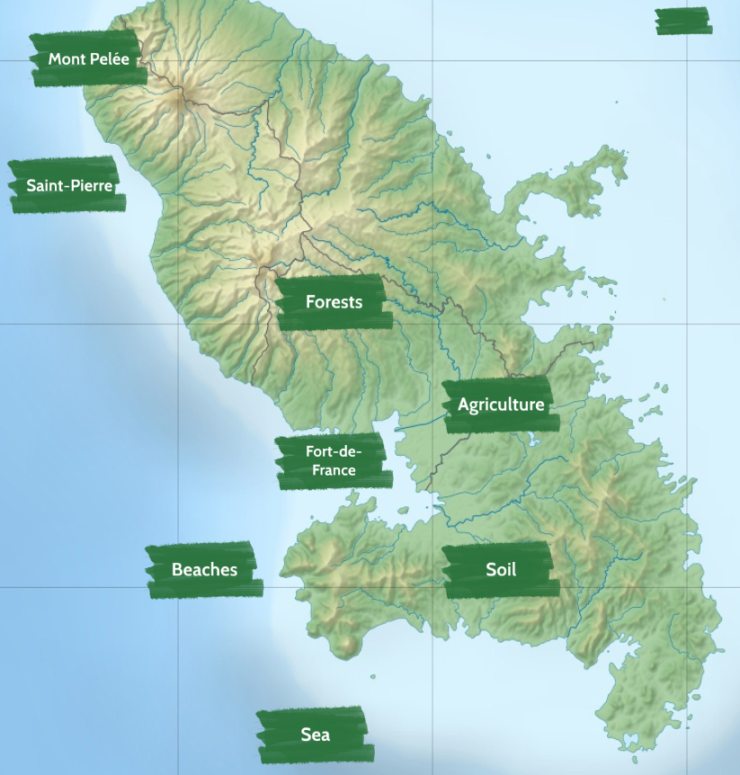
- Ode to Haiti – Ris Schortinghuis (YT video)
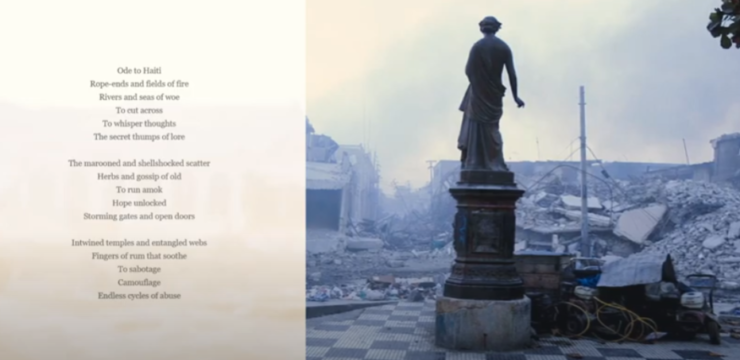
- Imagining the Middle Passage: A Visual, Literary and Theoretical Mapping of the Black Atlantic (prezi) – Stella Koudouma
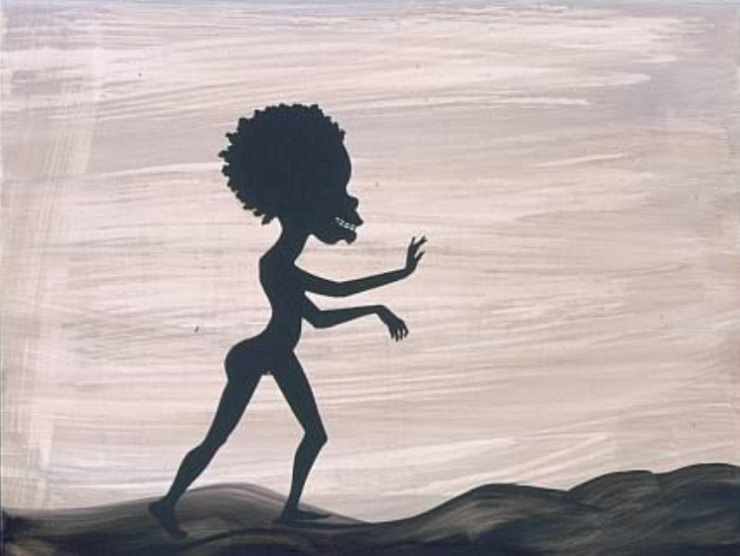 As my cultural map, I formulated a Prezi presentation of different theoretical, literary and visual approaches to imagining the Middle Passage. While the representation of the passage in-between is difficult to visualize, we are invited by thinkers, writers and artists to envision the journey from different perspectives. I aimed at focusing on various conceptions, from…
As my cultural map, I formulated a Prezi presentation of different theoretical, literary and visual approaches to imagining the Middle Passage. While the representation of the passage in-between is difficult to visualize, we are invited by thinkers, writers and artists to envision the journey from different perspectives. I aimed at focusing on various conceptions, from… - Haitian Vodou at the Crossroads of the Carnival – Bilyana Manolova (prezi)
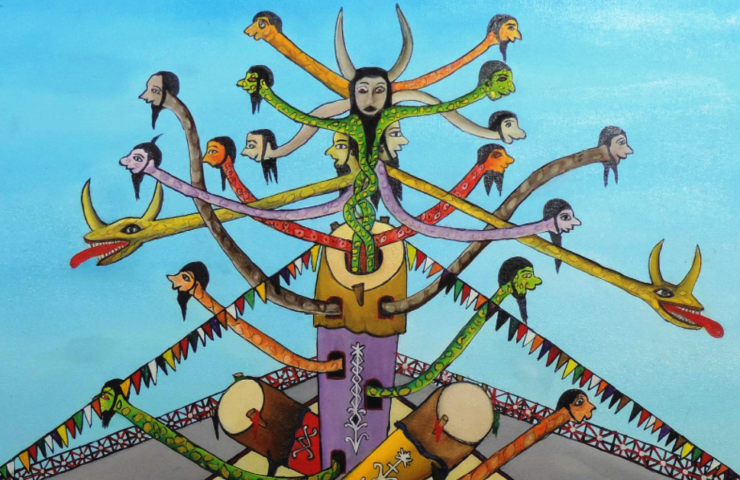 The cultural map “Haitian Vodou at the Crossroads of the Carnival” explores the place of Vodou in the socio-cultural consciousness of Haiti through tracing its origins, foundational belief system and historical importance in parallel with its representations in Haitian art and the Mardi Grass carnival’s character performances. Vodou is a syncretic religion, entangled in Christian…
The cultural map “Haitian Vodou at the Crossroads of the Carnival” explores the place of Vodou in the socio-cultural consciousness of Haiti through tracing its origins, foundational belief system and historical importance in parallel with its representations in Haitian art and the Mardi Grass carnival’s character performances. Vodou is a syncretic religion, entangled in Christian… - “The Perpetual Search” – Luna Njoku Dominguez
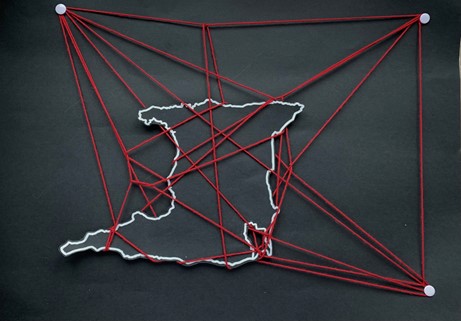 In week 3, both Dionne Brand and Saidiya Hartman attempted to define the impossible experience of attempting to trace an origin which has been displaced by the transatlantic slave trade. This map is an attempt to represent the entanglement of pasts and migrations (forced and later voluntary) which produce identities and global dynamics but which…
In week 3, both Dionne Brand and Saidiya Hartman attempted to define the impossible experience of attempting to trace an origin which has been displaced by the transatlantic slave trade. This map is an attempt to represent the entanglement of pasts and migrations (forced and later voluntary) which produce identities and global dynamics but which… - Haiti, History & Temporalities – Elizabeth Landers
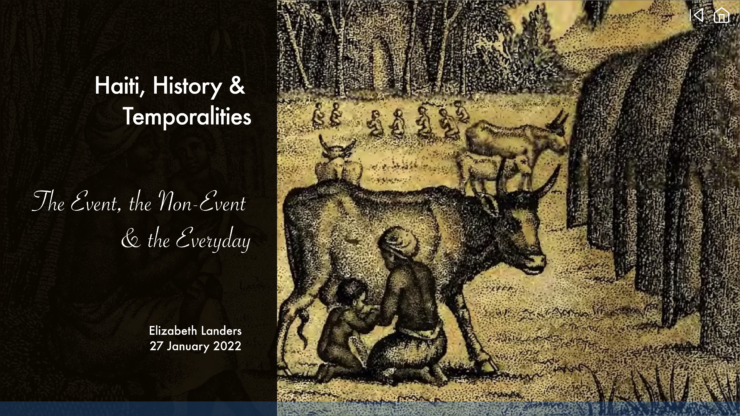
- Memory, Ocean, and Trinidad and Tobago – Sabria Schouten
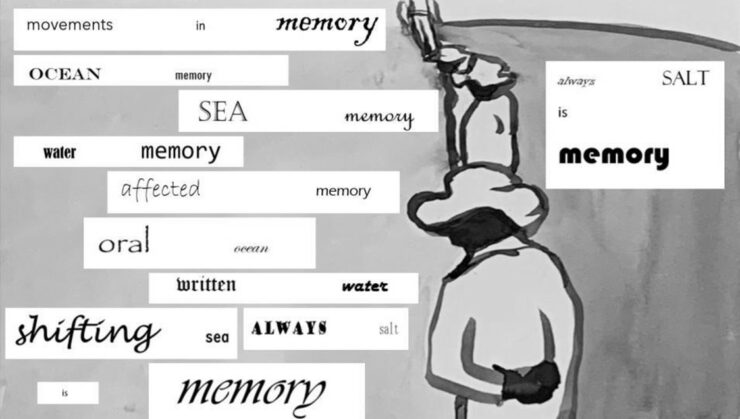 Inspired by the discussion of Zong! in this course and by the lecture on poetry, I chose to create a piece of found poetry connected to NourbeSe Philip’s work. The poem below is composed of words from the following quote found in Zong!, in the chapter entitled “Notanda”, where NourbeSe Philip writes: “Our entrance to…
Inspired by the discussion of Zong! in this course and by the lecture on poetry, I chose to create a piece of found poetry connected to NourbeSe Philip’s work. The poem below is composed of words from the following quote found in Zong!, in the chapter entitled “Notanda”, where NourbeSe Philip writes: “Our entrance to… - The “Complicated Mix” – Sam Broer
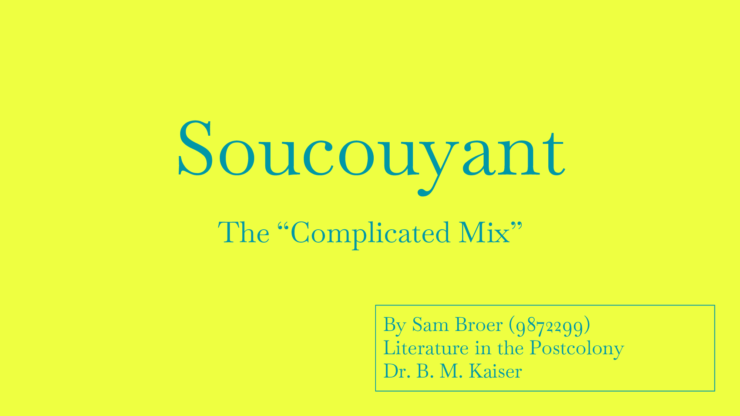
- Taíno Carvings and Precolonial History of Jamaica – Krista King
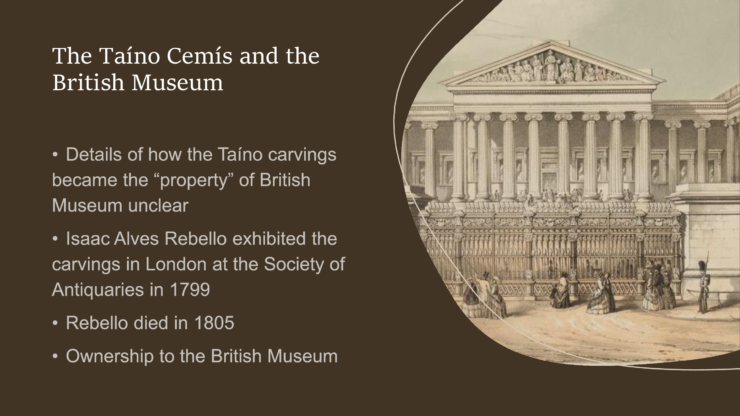
- Too Much Passion Unsteadies the Hand – Loïs van Albada
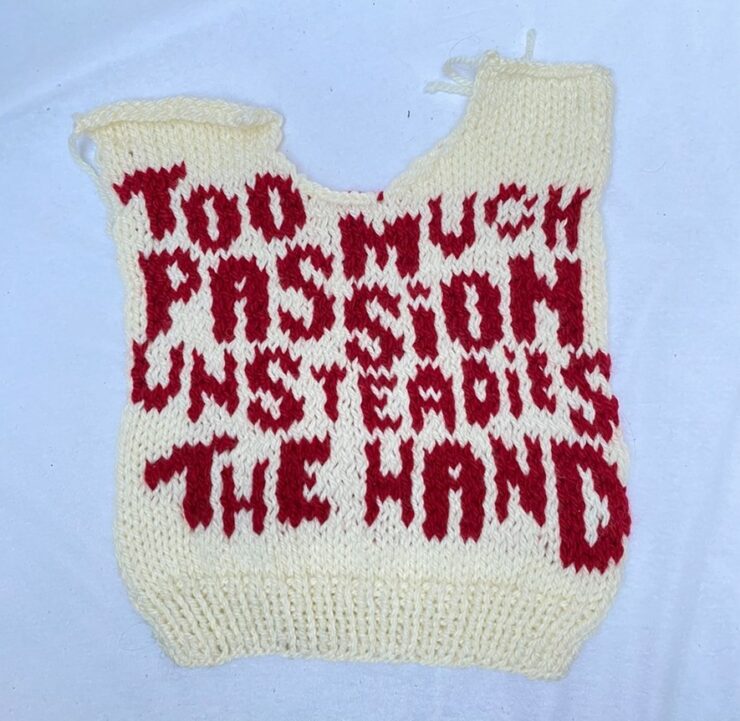 Cartography has been perceived as an unbiased practice in the past, the capturing of the world as the world is. But over time it has become clear that map-making is not unbiased as the representation of some matters will always mean the erasing of others. Kei Miller’s poem The Cartographer Tries to Map a Way…
Cartography has been perceived as an unbiased practice in the past, the capturing of the world as the world is. But over time it has become clear that map-making is not unbiased as the representation of some matters will always mean the erasing of others. Kei Miller’s poem The Cartographer Tries to Map a Way…

